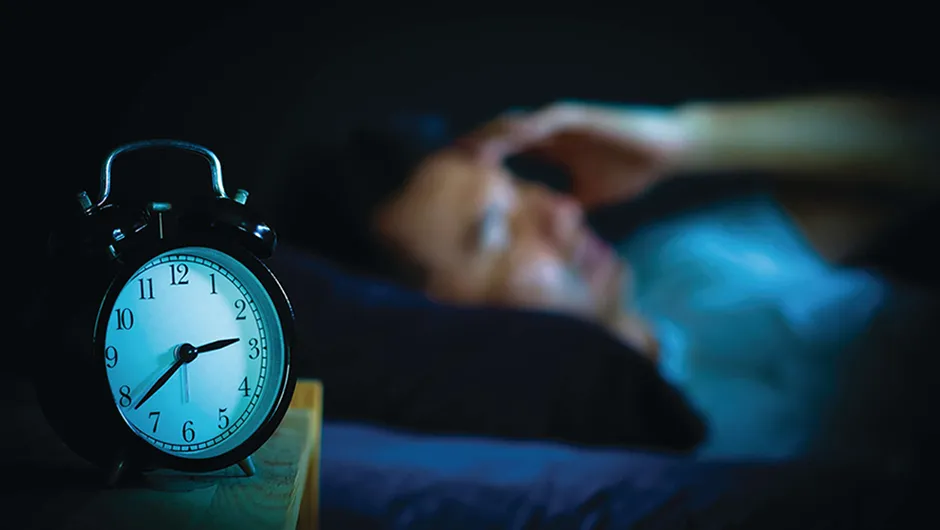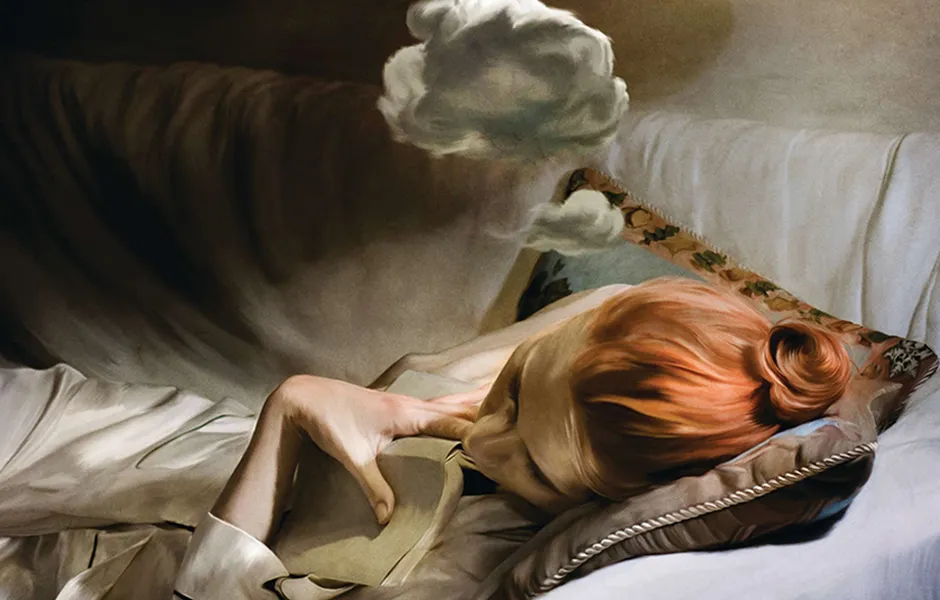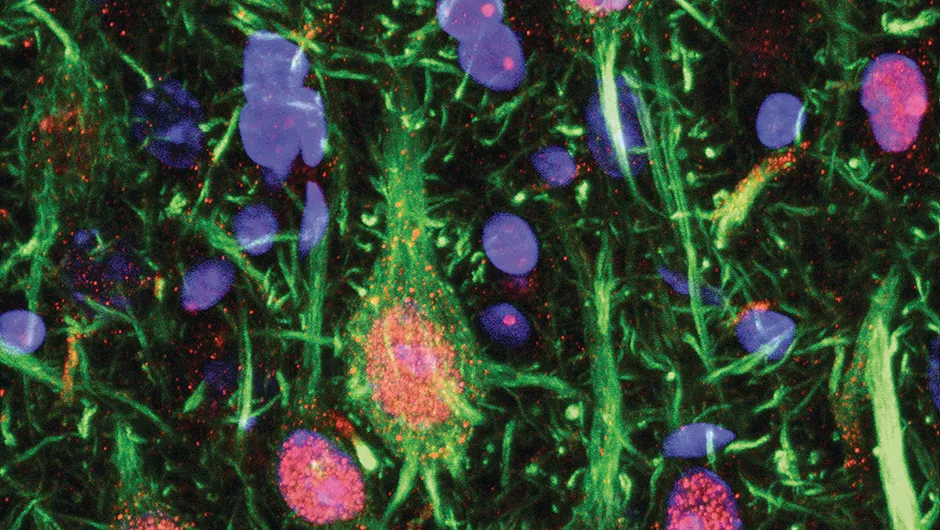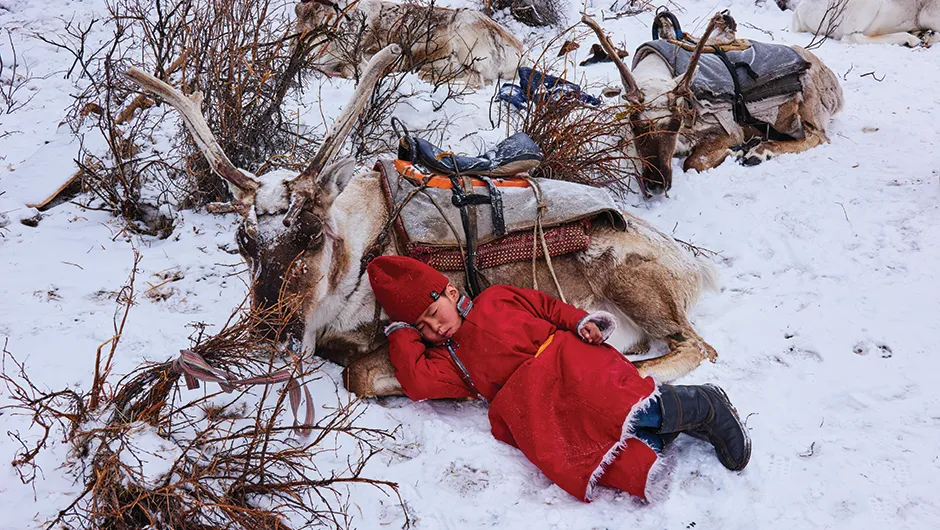What is sleep?
Sleep is a state of altered consciousness in which we become less aware of what’s going on around us. Sleep can take different forms in different animals. Dolphins, for example, sleep just half a brain at a time, and can even continue to swim while asleep.
For humans, sleep involves four stages, called N1, N2, N3 and rapid eye movement (REM). N1 is the lightest stage of sleep. It usually occurs right after you fall asleep, and typically lasts less than 10 minutes. During N2, you sink deeper into sleep. This stage is characterised by brief, high-amplitude brainwaves called ‘K-complexes’ and bursts of lower-amplitude waves called ‘sleep spindles’. The N3 stage is the deepest stage of sleep, and is characterised by slow brain waves called delta waves.

Finally, during REM sleep your brain activity and breathing rate speed up, and your eyes move quickly in lots of directions. Our most vivid dreams tend to occur in REM sleep, and our brain paralyses our muscles so that we’re unable to act them out. During the night, we continually cycle through these four sleep stages, with a full cycle taking around 90 minutes in adults.
How much sleep do we actually need?
It depends how old you are! A 2014 review of the scientific research concluded that toddlers (aged one to two) typically need between 11 and 14 hours of sleep per night, and this then decreases with age. Teenagers typically need around 8 to 10 hours of sleep, while adults need around 7 to 9 hours a night.
There are differences between us, though, and some adults can function perfectly well on six hours of sleep. However, you’re probably kidding yourself if you think you can get by on four hours!
It is also possible to sleep too much: adults are not recommended to have 11 or more hours of sleep a night. There are links between excessive sleep and medical problems including cardiovascular disease, obesity and diabetes, but it’s not clear why this is. It might be that these conditions cause oversleeping in the first place, or that sleeping when our bodies would more naturally be awake can harm the body in some way.
Read more reader Q&As about artificial intelligence:
- Why do I always come up with my best ideas when I’m trying to get to sleep?
- Is it possible to be too tired to sleep?
- Are our sleeping positions linked to our personalities?
- I wake up at 4am every morning and can’t get back to sleep. What can I do to fall asleep again?
Why do we dream?
The psychoanalyst Sigmund Freud suggested that dreams provide clues about the ‘unconscious mind’, arguing that they give us a way to fulfil hidden desires. Many scientists now reject this theory, because his ideas were based on only a small number of people, and it’s also difficult, if not impossible, to test some of his ideas.
A more popular idea is that dreaming helps us to process and deal with the emotions that we’ve experienced during the day. Another theory is that dreaming provides a kind of ‘virtual reality’ model of the world, enabling us to test out certain cognitive processes.

Our dreams may also provide a kind of survival mechanism by allowing us to simulate potential threats or rehearse social situations in advance. Finally, it might be that dreams serve no specific function, but are simply the by-product of our brain’s ceaseless activity while we sleep.
Why do our bodies need sleep?
Sleep has multiple benefits for our bodies and brains – a fact which also helps to explain why sleep evolved. For example, sleep is important for the production of certain hormones, such as the growth hormone, which, among other things, stimulates the regeneration of damaged and dying cells. Sleep also allows us to restore, retune and finely balance certain physiological processes within our bodies. An example of this is the 2013 finding by researchers at the University of Rochester, New York, that the toxins which build up in our brains during waking hours are flushed out of the brain during sleep.

Sleep also plays an important role in boosting our immune system, in learning and consolidating memories and in emotional regulation – essentially, our ability to manage and control our feelings and behaviour.
Why did sleep evolve in the first place?
The evolution of sleep is something of a paradox. We spend around 30 per cent of our lives sleeping, but during this time our vigilance is at its lowest and we’re less likely to notice threats. Sleep would have made our ancient ancestors less aware of, say, a prowling tiger.

We’re also typically unable to eat, drink or reproduce while we sleep – all of which are key for our survival. The eminent sleep scientist Allan Rechtschaffen said, “if sleep doesn’t serve some vital function, it is the biggest mistake evolution ever made.” Evolutionary theories include the idea that sleep allows us to conserve energy and save it for when we’re awake, or that sleep actually makes us less vulnerable to threats during the darkness of night by keeping us immobile and less likely to wander into danger.
by Prof Alice Gregory
Alice is a sleep scientist at Goldsmiths, University of London, and author ofNodding Off(£16.99, Bloomsbury Sigma).
Read more about sleep:
- A scientist’s guide to life: How to get a good night’s sleep
- Dr Michael Mosley: Why is sleep so important?
- Sleep technology: 21 top sleeping aids and gadgets to help you nod off
- Sleep in quarantine: is the lockdown affecting our dreams?
- The mysteries of sleep: everything we don’t know about why we snooze
- How much sleep do we need?
- Five things you probably didn’t know about sleep
